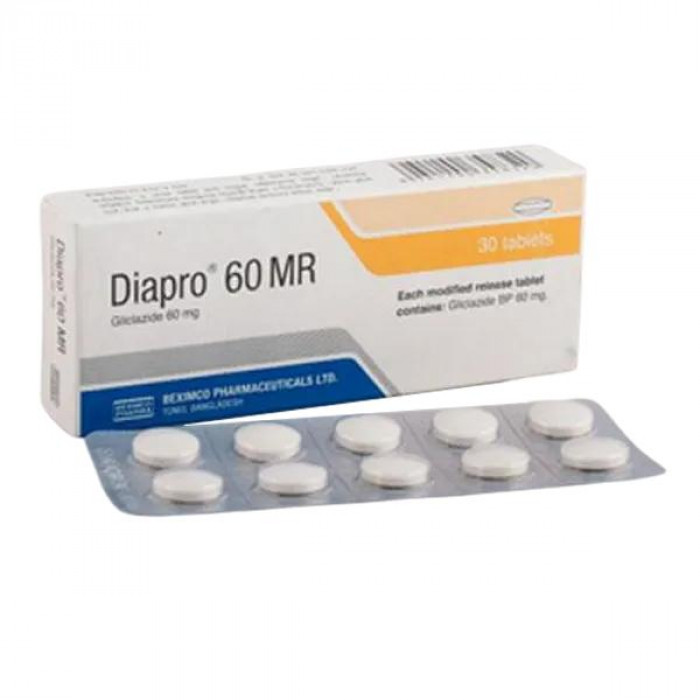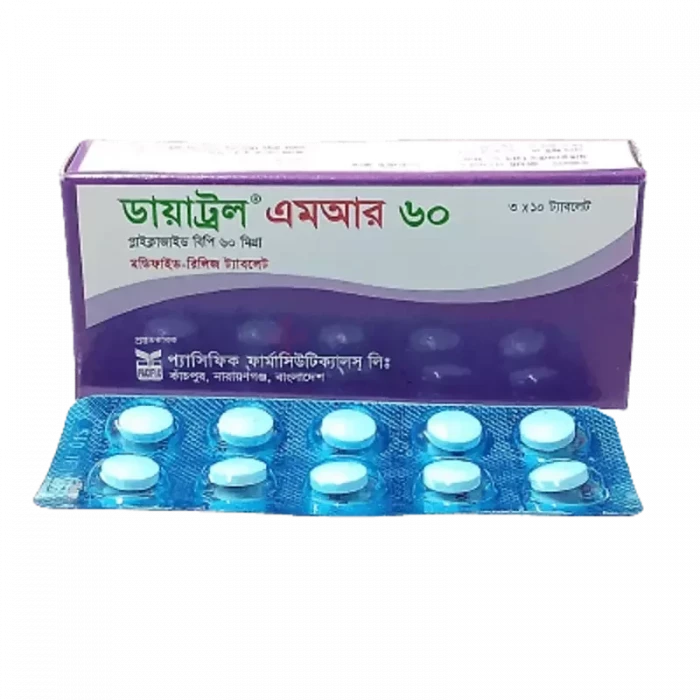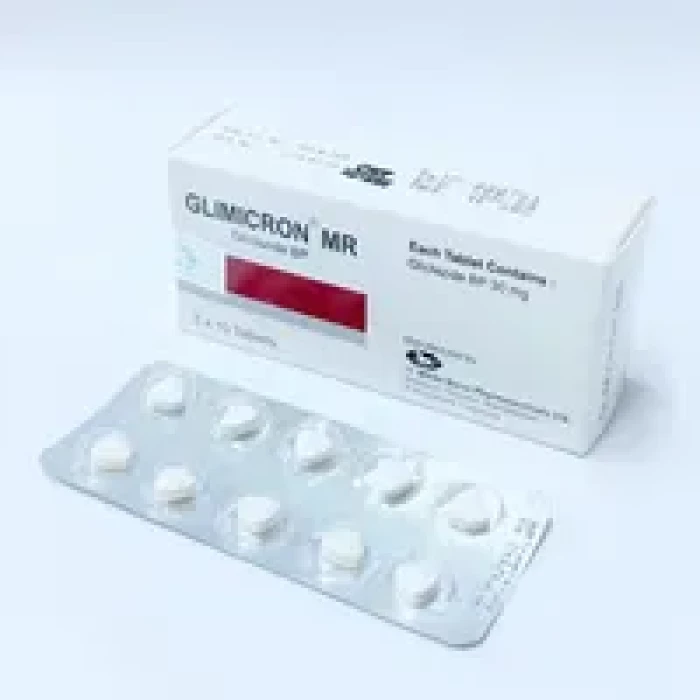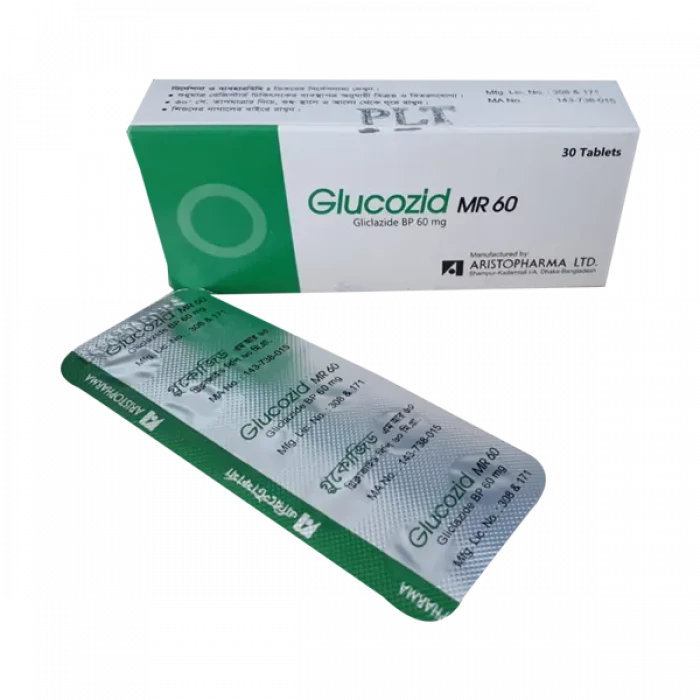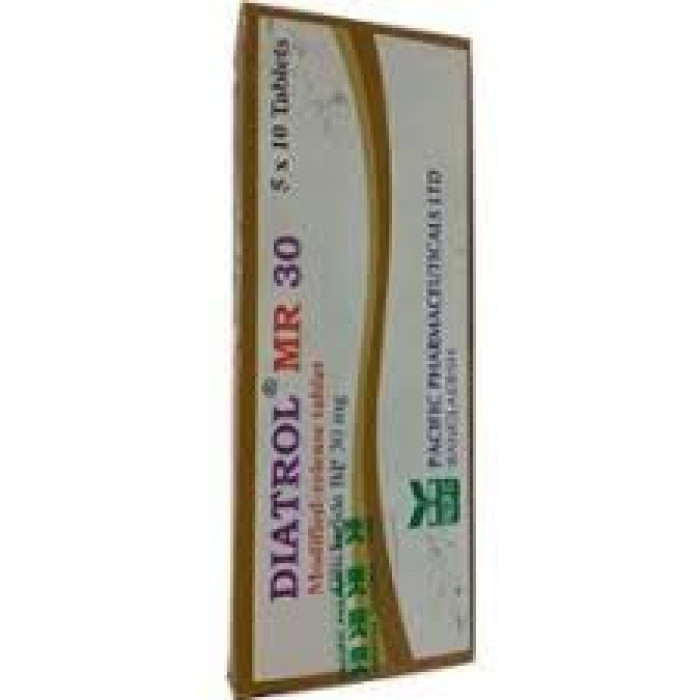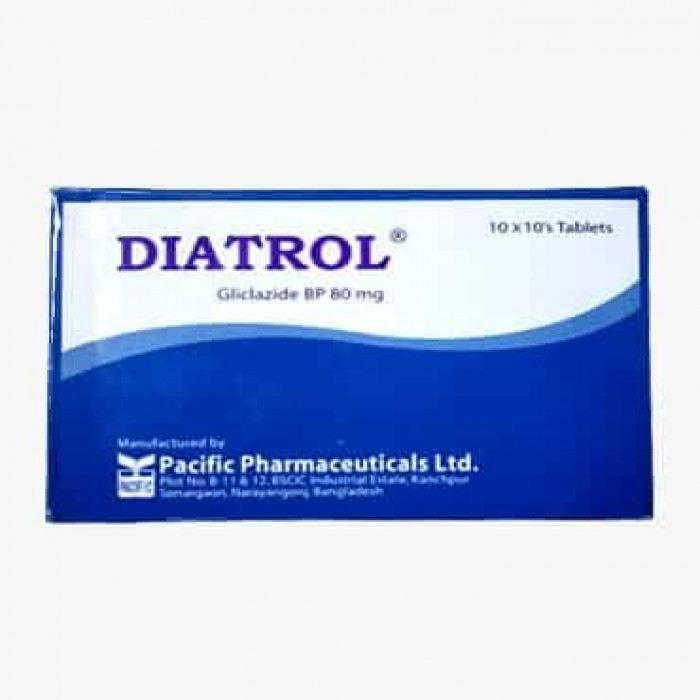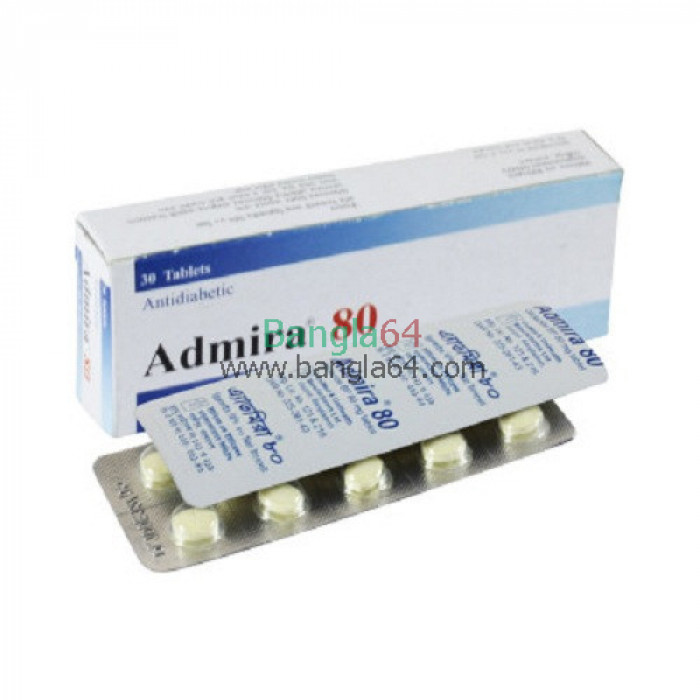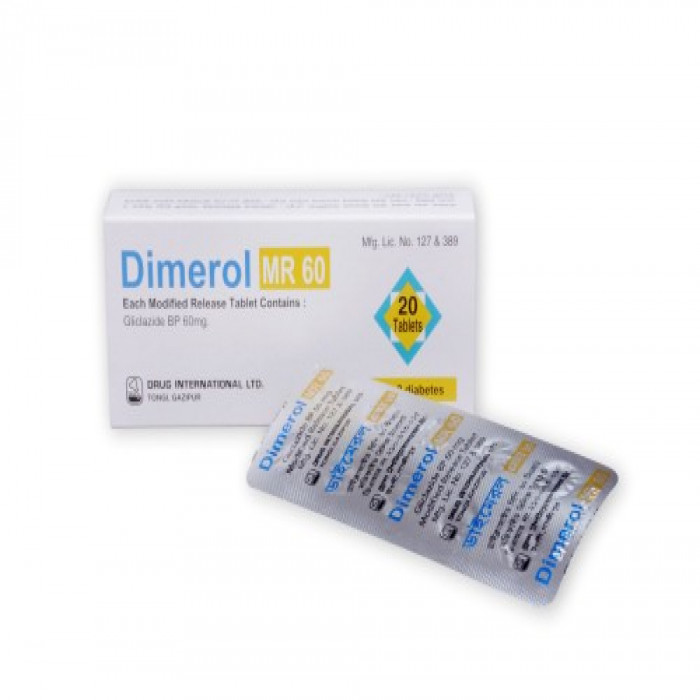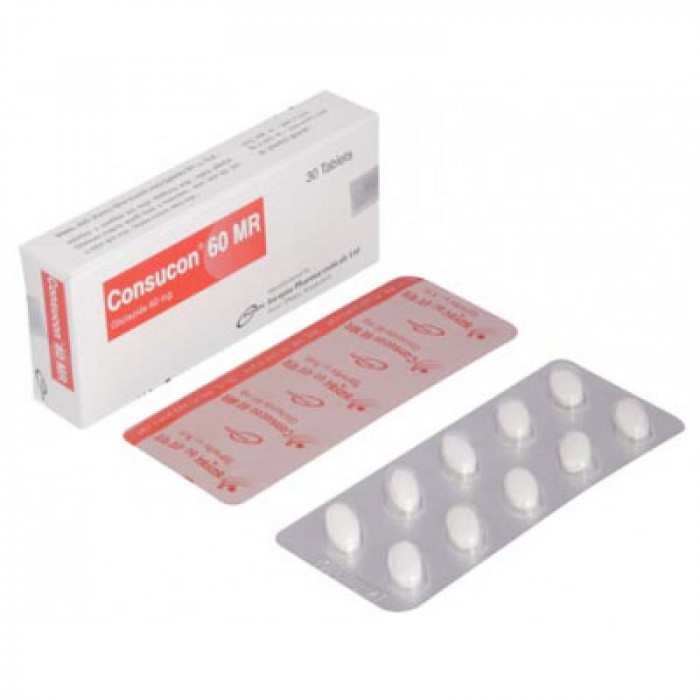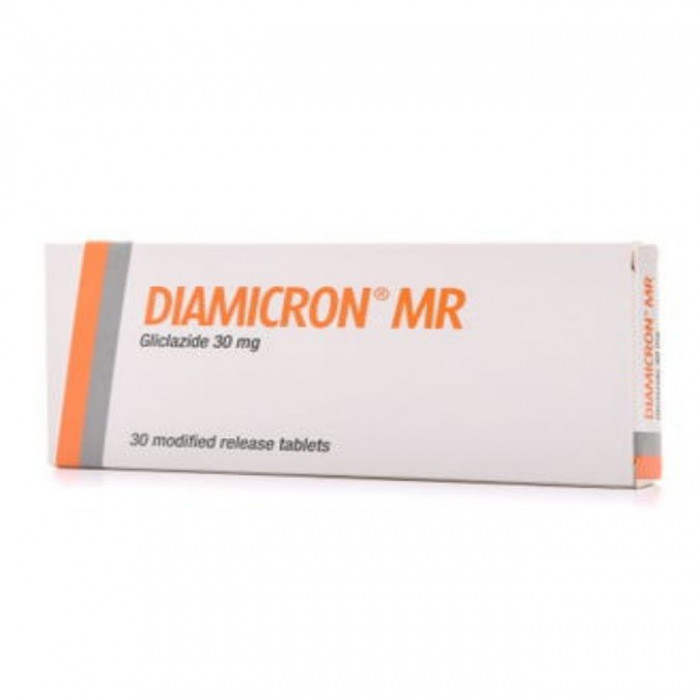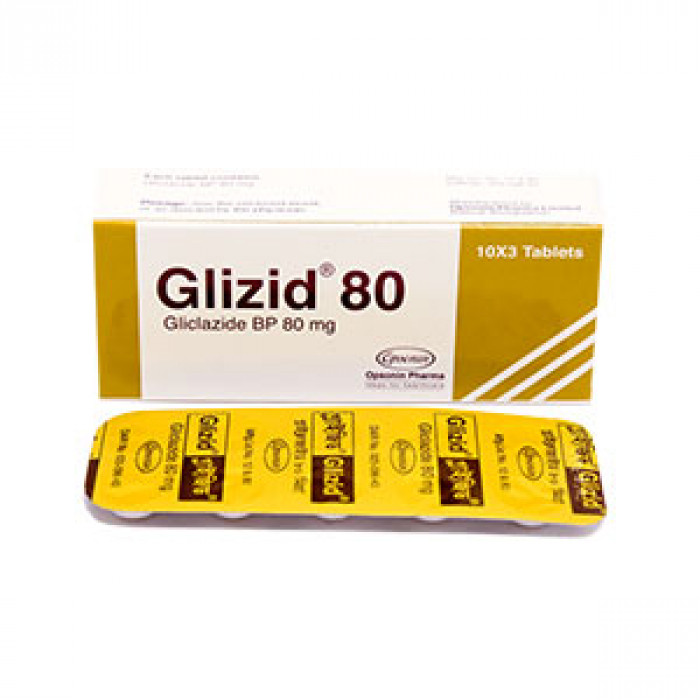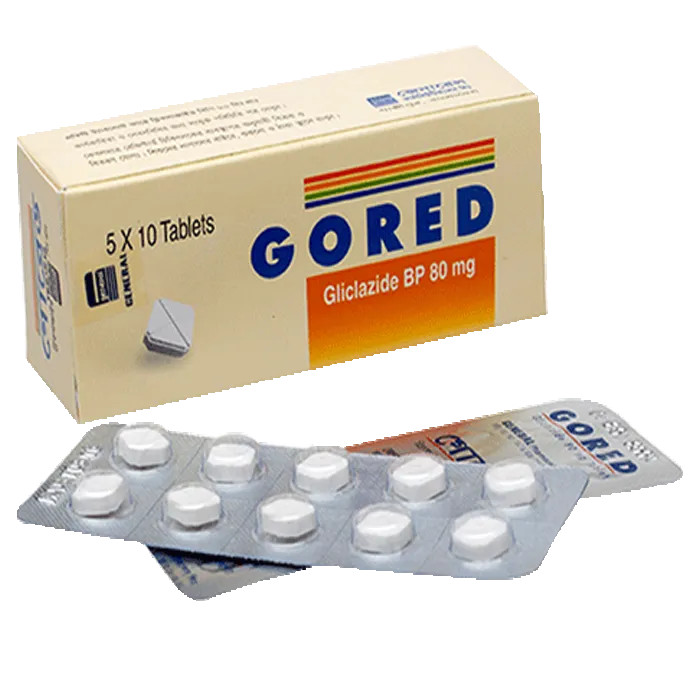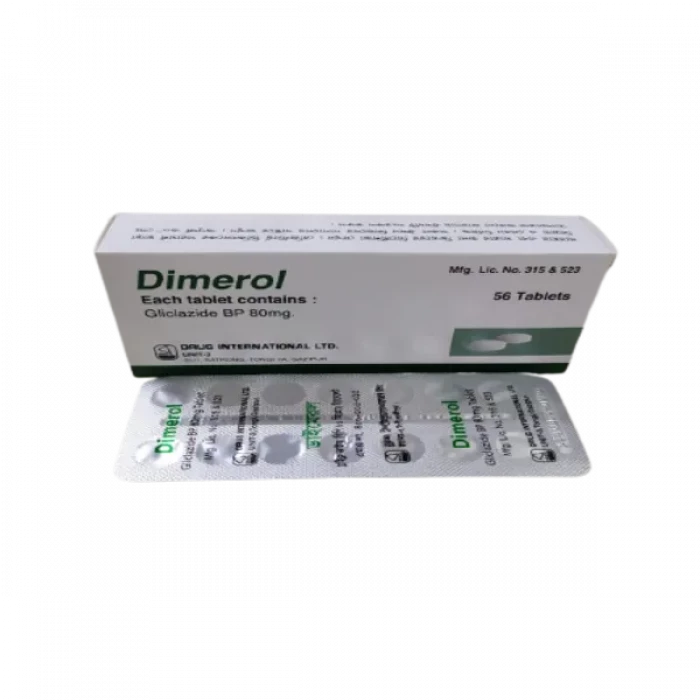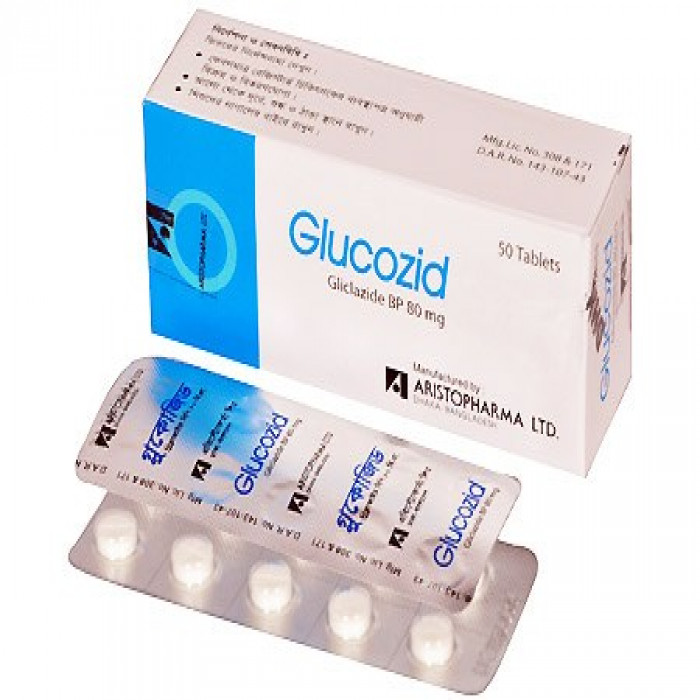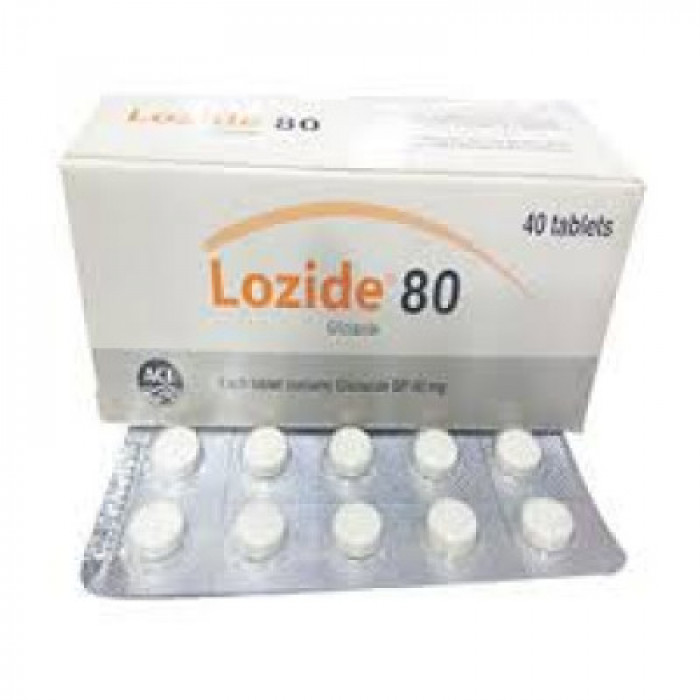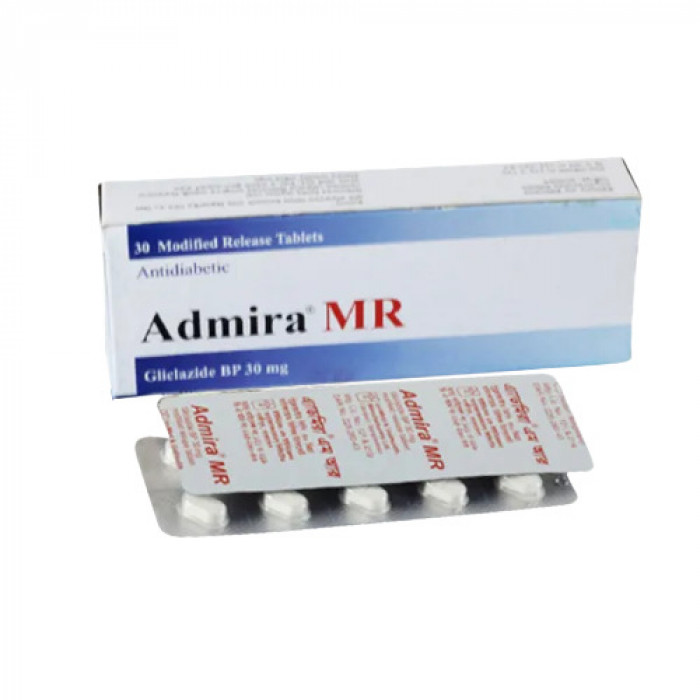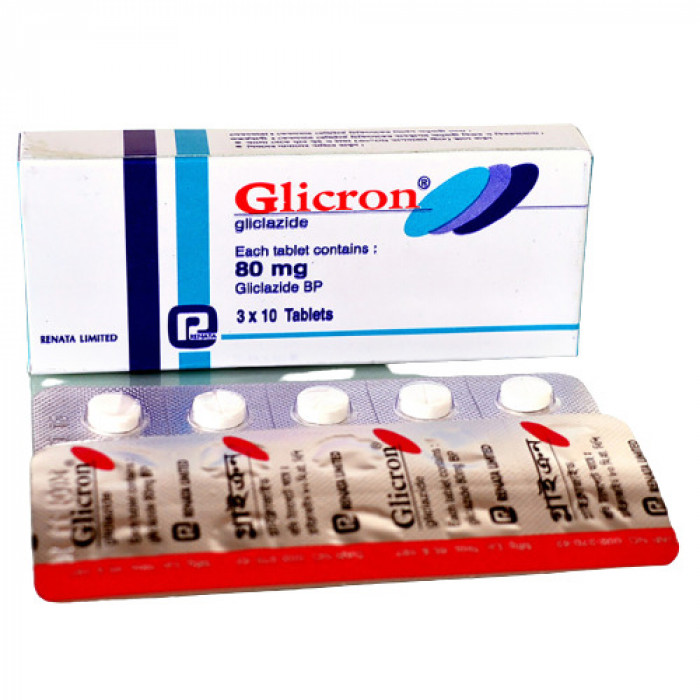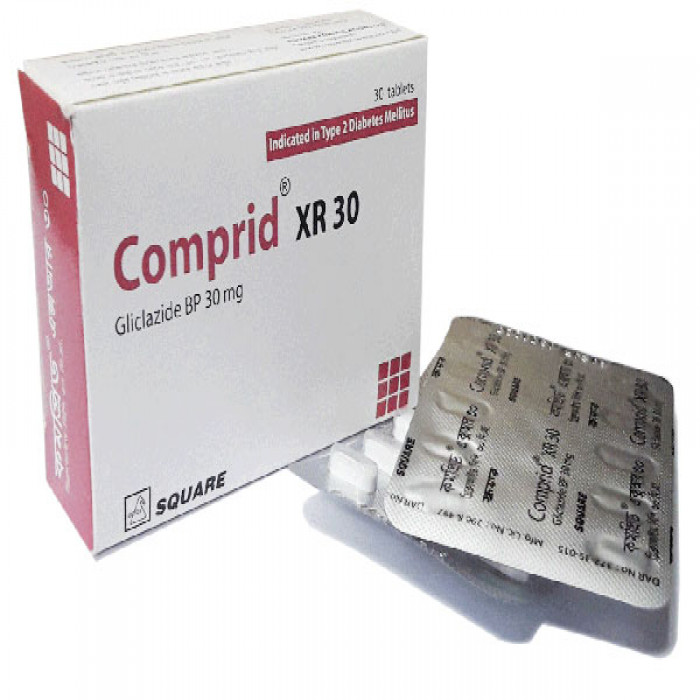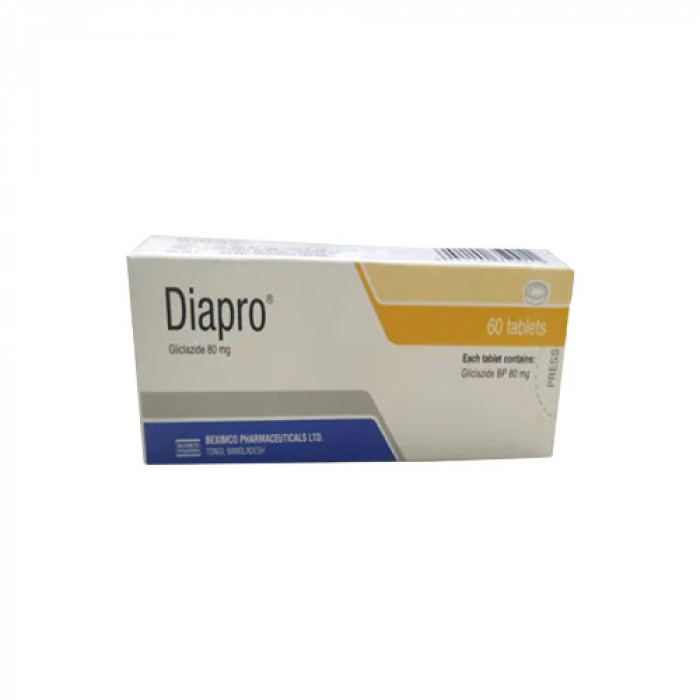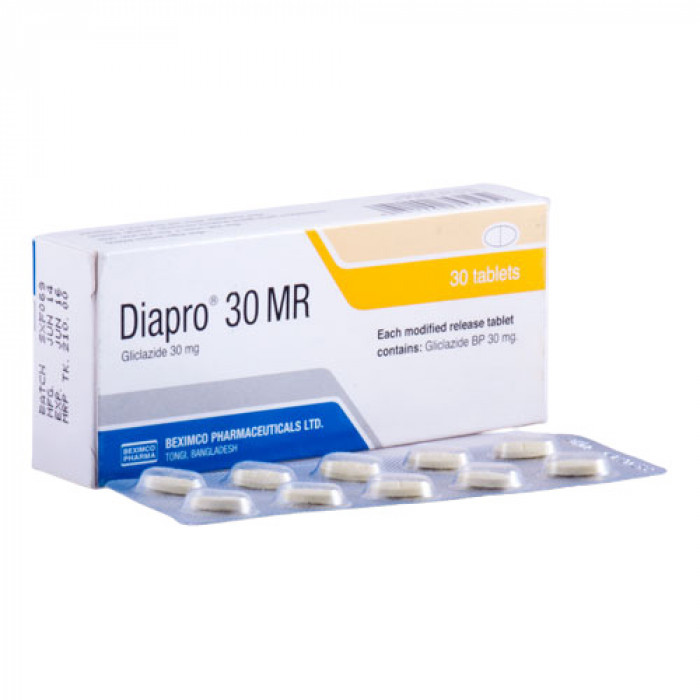Due to National Election, orders may be processed slight delay, nationwide.
Leading Online Pharmacy of Bangladesh
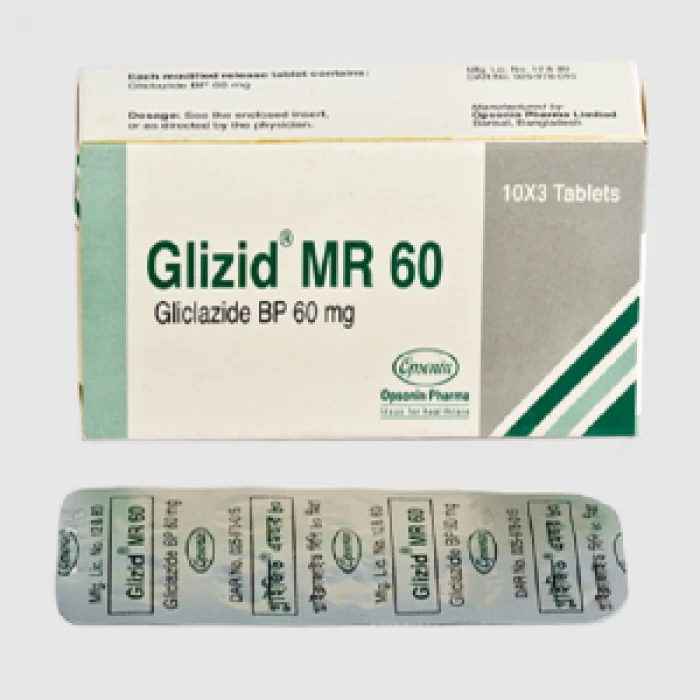
✔ 100% Authentic Product
👁️ Currently Viewing 1471
Gored MR 30mg Tablet
Type II Diabetes mellitus (DM) is a condition characterized by elevated blood sugar levels in the body. This is primarily caused by two factors: reduced production of insulin, a hormone responsible for regulating blood sugar levels, and decreased sensitivity of the body to insulin. Gored MR 30mg Tablet is a medication used in the treatment of Type II Diabetes. It functions by promoting the release of insulin from the pancreas, which aids in lowering blood sugar levels in the body.
Discount
Price: ৳ 118
MRP:
৳
124.4
5%
Off

100% Genuine Products, Guaranteed

Safe & Secure Payments, Always

Fast, Secure & Efficient Delivery

Proper Packaging
 Cash on Delivery - All over Bangladesh
Cash on Delivery - All over Bangladesh Regular Delivery - 12-24 Hours, Dhaka City* Charge Tk.39-59
Regular Delivery - 12-24 Hours, Dhaka City* Charge Tk.39-59 Regular Delivery - 24-48 Hours, Other Cities* Charge Tk.99-110
Regular Delivery - 24-48 Hours, Other Cities* Charge Tk.99-110
 ফ্রি ডেলিভারিঃ - ৯৯৯ টাকা+ অর্ডারে, ঢাকা
শহরে
ফ্রি ডেলিভারিঃ - ৯৯৯ টাকা+ অর্ডারে, ঢাকা
শহরে ফ্রি ডেলিভারিঃ - ২৯৯৯ টাকা+ অর্ডারে, ঢাকার
বাহিরে
ফ্রি ডেলিভারিঃ - ২৯৯৯ টাকা+ অর্ডারে, ঢাকার
বাহিরে
100% Genuine Products, Guaranteed
Safe & Secure Payments, Always
Fast, Secure & Efficient Delivery
Proper Packaging
 Cash on Delivery - All over Bangladesh
Cash on Delivery - All over Bangladesh Regular Delivery - 12-24 Hours, Dhaka City* Charge Tk.39-59
Regular Delivery - 12-24 Hours, Dhaka City* Charge Tk.39-59 Regular Delivery - 24-48 Hours, Other Cities* Charge Tk.99-110
Regular Delivery - 24-48 Hours, Other Cities* Charge Tk.99-110 ফ্রি ডেলিভারিঃ - ৯৯৯ টাকা+ অর্ডারে, ঢাকা
শহরে
ফ্রি ডেলিভারিঃ - ৯৯৯ টাকা+ অর্ডারে, ঢাকা
শহরে ফ্রি ডেলিভারিঃ - ২৯৯৯ টাকা+ অর্ডারে, ঢাকার
বাহিরে
ফ্রি ডেলিভারিঃ - ২৯৯৯ টাকা+ অর্ডারে, ঢাকার
বাহিরে
✅ Description:
Gored MR 30mg Tablet is classified as an oral hypoglycemic medication used to treat type 2 diabetes. It effectively regulates blood sugar levels by stimulating the pancreas to produce more insulin and enhancing the body's utilization of insulin.
When diet, exercise, and weight loss fail to achieve the desired results in controlling diabetes, a Gored MR 30mg Tablet is prescribed. The dosage may vary from 80 mg to 320 mg per day, and doses exceeding 160 mg are usually divided into two equal parts. It is essential to avoid altering the dosage without consulting a doctor and not to double the dose if a dose is missed.
Certain conditions contraindicate the use of this medication, such as allergies to its components, pregnancy or breastfeeding, the presence of type 1 diabetes, kidney or liver problems, and recent surgery.
Although Gored MR 30mg Tablet may cause side effects, not everyone experiences them. These side effects may include diarrhea, dizziness, stomach cramps, joint pain, gastrointestinal issues, headaches, increased skin sensitivity, vomiting, and nausea. If any of these side effects occur, consulting a doctor is advisable. Serious reactions, such as seizures, chest pain, unconsciousness, and severe skin reactions, should prompt the immediate discontinuation of the medication.
Before starting Gored MR 30mg Tablet, it is essential to inform your doctor about other medications you may be taking. Alcohol consumption while using this medication can lead to reactions like warmth, nausea, and flushing. A proper diet is also recommended to be followed along with the medication.
It is important to note that the information provided here is based on the medicine's content. The effects and uses of the medication may vary from person to person, and it is advisable to consult a Diabetologist before using Gored MR 30mg Tablet.
Safety Advices

Alcohol
UNSAFE
Avoid alcohol consumption while taking Gored MR 30mg Tablet as it could aggravate your existing condition.

Pregnancy
CONSULT YOUR DOCTOR
Gored MR 30mg Tablet is generally not recommended for use in pregnant women. Therefore, consult your doctor before taking it.

Breastfeeding
CONSULT YOUR DOCTOR
Gored MR 30mg Tablet is generally not recommended for use in breastfeeding women. Therefore, consult your doctor before taking it.

Driving
CAUTION
Gored MR 30mg Tablet causes low blood sugar levels, which leads to dizziness, drowsiness, unconsciousness, and confusion. This impairs driving ability.

Kidney
CONSULT YOUR DOCTOR
Gored MR 30mg Tablet is not recommended for use in patients with severe kidney disease. It should be used with caution in patients with decreased kidney functions. Therefore, consult your doctor before taking it.

Liver
CONSULT YOUR DOCTOR
Gored MR 30mg Tablet is not recommended for use in patients with severe liver disease. It should be used with caution in patients with decreased liver functions. Therefore, consult your doctor before taking it.
✔️ Uses of Gored MR 30mg Tablet
- Treats Type II diabetes mellitus in adults
✔️ How does Gored MR 30mg Tablet work?
Gored MR 30mg Tablet belongs to the class sulfonylureas. It works by lowering blood glucose levels by stimulating the release of insulin from pancreatic beta cells.
✔️ Side Effects of Gored MR 30mg Tablet
Hypoglycemia (low blood glucose level), Dizziness, Headache, Nausea, Weight gain, Gastrointestinal disturbance
✔️ Quick Suggestions:
- Take Gored MR 30mg Tabletshortly before or with the first main meal of the day (usually breakfast). Avoid skipping meals.
- Be careful while driving or operating machinery until you know how Gliclazide affects you.
- It can cause hypoglycemia (low blood sugar level) when used with other antidiabetic medicines, alcohol, or if you delay or miss a meal.
- Always carry some sugary food or fruit juice with you in case you experience hypoglycemic symptoms such as cold sweats, cool pale skin, tremors, and anxiety.
- Your doctor may check your liver function regularly. Inform your doctor if you develop symptoms, such as abdominal pain, loss of appetite, or yellowing of the eyes or skin (jaundice).
✔️ Indication of Gored MR 30mg Tablet
Gliclazide is used to lower blood sugar levels in Type 2 Diabetes when diet, exercise, and weight reduction alone are insufficient. It is used alongside diet and exercise to improve blood sugar control in adults with type 2 diabetes.
✔️ Pharmacology
Gliclazide is a second-generation sulfonylurea with hypoglycemic and potential hematological effects. It works by reducing hepatic glucose production and stimulating insulin release from pancreatic beta-cells, achieved by promoting calcium ion (Ca+2) transport across the beta-cell membranes.
✔️ Dosage & Administration of Gored MR 30mg Tablet
For the film-coated tablet, the typical initial dose is 40 to 80 mg per day, taken before meals. If necessary, the dose can be increased up to 320 mg per day in divided doses. Gliclazide is not used in children due to contraindications in juvenile-onset diabetes.
For the modified-release preparation, the usual daily dosage is 1 to 4 tablets of Gliclazide 30 mg or 1 to 2 tablets of Gliclazide 60 mg, taken as a single dose at breakfast time. It is advisable to take the drug before breakfast to minimize potential digestive issues.
- Take Gored MR 30mg Tablet before meals or as advised by your physician.
- Swallow the medicine with a glass of water.
- Do not crush or chew the medicine.
- Your doctor will decide the correct dose and duration of therapy for you depending on your age, body weight, and disease condition.
- Continue to take Gored MR 30mg Tablet for the duration recommended by your doctor to achieve better control over blood sugar levels.
✔️ Interaction
Before taking Gored MR 30mg Tablet, it is important to inform your doctor if you are taking any of the following medicines:
Drug-Drug Interactions :
- Other antidiabetic medications: metformin, insulin, glipizide, glibenclamide, dapagliflozin, teneligliptin, etc.
- Antifungal medicines: miconazole, fluconazole.
- St. John's Wort: a herbal preparation used to treat depression.
- Antibiotics: ciprofloxacin, moxifloxacin, clarithromycin, co-trimoxazole, rifampicin, chloramphenicol, tetracyclines, or sulphonamides.
- Medicines used to treat high blood pressure or heart failure: beta-blockers, ACE inhibitors.
- Medicines used to treat stomach ulcers: ranitidine, famotidine.
- Medicines used to treat depression: moclobemide, isocarboxazid, phenelzine, and tranylcypromine.
- Medicines used for pain relief: aspirin, phenylbutazone, ibuprofen, and azapropazone.
- Medicines containing alcohol: cough preparations.
- Medicines to treat mental illness: chlorpromazine, prochlorperazine, lithium.
- Corticosteroids: prednisolone, cortisone, betamethasone.
- Medicines used to treat asthma: salbutamol, terbutaline.
- Ritodrine: a medicine used to stop premature labor.
- Danazol: a medicine used to treat breast disorders, heavy menstrual bleeding, and endometriosis.
- Medicines used for blood thinning: warfarin.
- Diuretics: bendroflumethiazide, hydrochlorothiazide, furosemide.
- Oral contraceptives: drospirenone, ethinylestradiol.
- Sulfinpyrazone: a medicine used to treat gout.
- Aminoglutethimide: a medicine used to treat breast cancer or prostate cancer.
- Thyroid hormones: thyroxine is used to treat thyroid deficiency.
- Octreotide: a medicine used to treat bleeding in the gut.
- Testosterone: a hormonal medicine used to treat delayed puberty in men.
- Cimetidine: a medicine used to treat stomach ulcers.
- Clofibrate: a medicine used to treat high blood cholesterol levels.
- Disopyramide: a medicine used for irregular heartbeats.
- Laxatives: lactulose, ispagula, used to treat constipation.
Drug-Food Interactions:
Gliclazide may interact with alcoholic beverages, leading to an increased risk of hypoglycemia (low blood sugar). It is advisable to avoid alcohol consumption while taking Gliclazide to prevent potential complications.
Drug-Disease Interactions:
Gliclazide should be avoided in patients with severe liver or kidney problems, severe thyroid or adrenal gland problems, or those who have experienced a diabetic coma. Using Gliclazide in these conditions may worsen the existing health problems and is not recommended. Patients with these conditions should consult their healthcare provider for alternative treatment options.
In case of overdosage, consult your doctor immediately or seek medical attention. Symptoms of overdose may include signs of low blood glucose levels, such as weakness, sweating, trembling, fast heartbeat, confusion, and double vision.
✔️ Contraindications
- Juvenile-onset (type 1) diabetes: Gliclazide is not recommended for use in patients with type 1 diabetes, which is also known as juvenile-onset diabetes, as it is not effective in this condition.
- Diabetes associated with ketosis: Gliclazide should not be used in diabetic patients with ketosis, a condition characterized by high levels of ketones in the blood, as it may not be suitable for managing this condition.
- Diabetic patients undergoing surgery, after a severe injury, or during an infection: Gliclazide may not be appropriate for use in diabetic patients who are undergoing surgery, have experienced a severe injury, or are dealing with an infection, as their blood sugar levels may be unstable and require different management.
- Patients with sulfonylurea hypersensitivity: Individuals who are hypersensitive or allergic to sulfonylurea medications, which include gliclazide, should avoid using this medication.
- Pregnant women and breastfeeding mothers: Gliclazide is generally not recommended during pregnancy and breastfeeding due to potential risks to the developing fetus or nursing baby. Pregnant or breastfeeding women should consult their healthcare provider for alternative treatment options.
- Hepatic insufficiency: Gliclazide may not be suitable for use in patients with severe liver impairment or hepatic insufficiency, as the medication's metabolism may be affected in such cases.
✔️ Pregnancy & Lactation
Pregnant women should avoid using gliclazide. It should not be used by a woman who is breastfeeding.
✔️ Precautions & Warnings
When using gliclazide or any other antidiabetic medication, it is essential to monitor blood glucose concentration regularly. Here are some important points to consider:
Blood glucose monitoring: Regularly monitoring blood glucose levels is crucial in diabetes management to ensure that blood sugar levels are within the target range.
Insulin during metabolic stress: During periods of metabolic stress, such as illness, surgery, or infection, blood glucose levels may become more challenging to control. In such situations, additional insulin may be required to manage blood sugar levels effectively.
Care when transferring from combination therapy: If a patient is switching from combination therapy, which involves taking multiple antidiabetic medications, to gliclazide monotherapy or vice versa, it is essential to carefully manage the transition to avoid complications or changes in blood glucose levels.
Increased risk of severe hypoglycemia: Elderly patients, debilitated patients, and those with hepatic or renal impairment may be more susceptible to severe hypoglycemia (dangerously low blood sugar levels) when taking gliclazide. Close monitoring and appropriate dose adjustments may be necessary for such individuals.
Risk of hypoglycemia under certain conditions: Hypoglycemia can occur under certain conditions, such as when caloric intake is deficient, after strenuous exercise, when alcohol (ethanol) is consumed, or when multiple antidiabetic drugs are used together. Patients should be aware of the symptoms of hypoglycemia and take appropriate precautions.
✔️ Storage Conditions
Store in a cool and dry place, below 30°C and away from light.
⚠️Disclaimer:
At ePharma, we’re committed to providing accurate and accessible health information. However, all content is intended for informational purposes only and should not replace medical advice from a qualified physician. Please consult your healthcare provider for personalized guidance. We aim to support, not substitute, the doctor-patient relationship.




